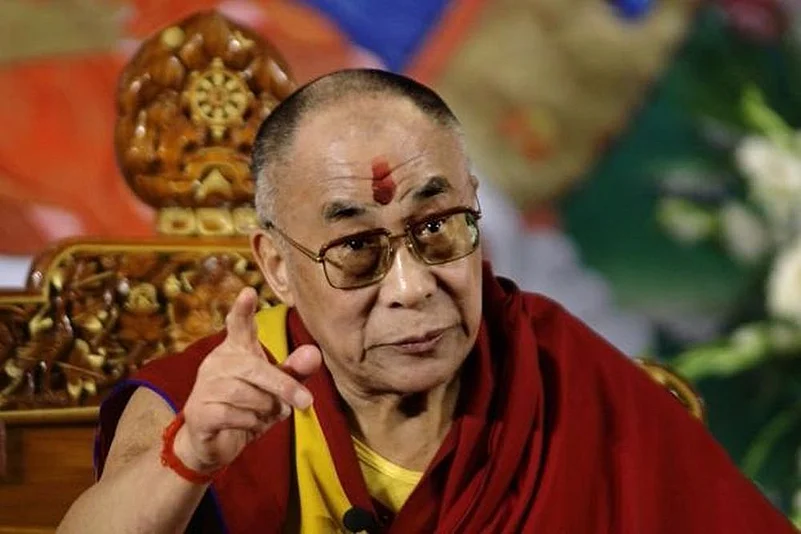The Dalai Lama on Sunday said that Tibet can remain in China, only if Beijing recognised and respected the region's distinct culture and autonomy.
Speaking at a lecture on 'Role of Ethics and Culture in Promoting Global Peace and Harmony' here, organised by Nehru Memorial Museum and Library and Antar-Rashtriya Sahyog Parishad, the Dalai Lama said, "Historically and culturally, Tibet has been independent. China took control of Tibet in 1950 in what it called a 'peaceful liberation'. So, as long as the Constitution of China recognises our culture and Tibetan autonomous region's special history, it (Tibet) can remain there."
The event was being held to commemorate the 60th anniversary of the 82-year-old Tibetan spiritual icon's exile to India.
The Dalai Lama also expressed concerns on the ethnic violence against the Rohingyas in Myanmar, calling it as sad and terrifying. Also, he underscored the need to iron out differences and to work for all-round development and peace together.
Calling on the inclusion of ancient Indian traditions in the country's education, the Dalai Lama added, "Discussions on how to include ancient Indian traditions in educational system should begin. India has the ability to combine modern education with its ancient traditions to help solve problems in the world. This would help India to fight against terrorism and global warming."
Also, pressing on efforts to spread Indian traditions globally, like how China was able to spread its traditions, he further said, "Try to revive ancient Indian traditions. Actual change does not come from prayer, it comes from action. Wherever Chinese go, they have a 'China Town'. Why not an 'India Town' by Indians?"
The Dalai Lama also went to say that the global warming had adversely affected the amount of snowfall in Dharamshala, where he resided and also the seat of the Tibetan government-in-exile.
Terming Buddha as an 'ancient Indian scientist', the 82-year-old spiritual leader added that he considered himself as "a half-scientist and a half-monk."
Throwing light on the teachings of Tibetan Buddhism, the Dalai Lama said, " The greatness of the Indian civilisation is its spiritual brotherhood and harmony. It has helped to produce the greatest philosophical thinkers and preachers who gave rise to the Nalanda tradition of Buddhism based on reason and logical conclusion."
The Dalai Lama, along with his followers, fled to India from Tibet in 1959 in a massive uprising by the Chinese forces.
Beijing calls the 82-year-old Buddhist monk a 'separatist,' seeking to secede Tibet from China.
(ANI)

























